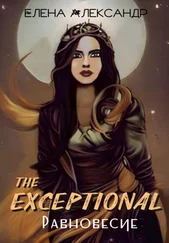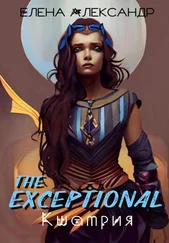Christian Jungersen - The Exception
Здесь есть возможность читать онлайн «Christian Jungersen - The Exception» весь текст электронной книги совершенно бесплатно (целиком полную версию без сокращений). В некоторых случаях можно слушать аудио, скачать через торрент в формате fb2 и присутствует краткое содержание. Год выпуска: 2010, Издательство: Orion Books, Жанр: Современная проза, Триллер, на английском языке. Описание произведения, (предисловие) а так же отзывы посетителей доступны на портале библиотеки ЛибКат.
- Название:The Exception
- Автор:
- Издательство:Orion Books
- Жанр:
- Год:2010
- ISBN:нет данных
- Рейтинг книги:3 / 5. Голосов: 1
-
Избранное:Добавить в избранное
- Отзывы:
-
Ваша оценка:
- 60
- 1
- 2
- 3
- 4
- 5
The Exception: краткое содержание, описание и аннотация
Предлагаем к чтению аннотацию, описание, краткое содержание или предисловие (зависит от того, что написал сам автор книги «The Exception»). Если вы не нашли необходимую информацию о книге — напишите в комментариях, мы постараемся отыскать её.
The Exception — читать онлайн бесплатно полную книгу (весь текст) целиком
Ниже представлен текст книги, разбитый по страницам. Система сохранения места последней прочитанной страницы, позволяет с удобством читать онлайн бесплатно книгу «The Exception», без необходимости каждый раз заново искать на чём Вы остановились. Поставьте закладку, и сможете в любой момент перейти на страницу, на которой закончили чтение.
Интервал:
Закладка:
At one point during the evening, a dark-haired man with a square jaw stood outside on the balcony and shouted incomprehensibly at people in the street. In the flat everybody laughed, as if the man’s behaviour were a normal part of their Saturday-night fun. Some of his friends made him come back inside and sit on the sofa. Camilla started talking to him. His English was very good. He said that his name was Dragan and he had been a schoolteacher in Bosnia. He had come to Denmark a month ago and lived near Lyngby, in a refugee camp for Yugoslav asylum-seekers. He looked to be in his late twenties, roughly the same age as her, but he didn’t mention anything about a wife or children.
They got up to dance, but it went badly. The music was unlike anything Camilla had ever heard before, a surreal mixture of gypsy melody and punk rock. Dragan was dancing about wildly, with big leaps and flailing arms, but even in all the noise and under the low lights, Camilla couldn’t let herself go.
Later that night she went to the kitchen to rest her legs. Two friends from the choir were there too. While they were talking, a spat broke out in another room. There was a terrific crash.
They hurried to find out what was going on. A group of angry Yugoslavs had gathered around Dragan. Someone explained that Dragan had got into an argument with a buddy who had locked himself into the toilet. After some shouting at each other through the door, Dragan had kicked it down. Some of the guests seemed very frightened.
Dragan himself was still very agitated about whatever the man in the toilet had said and wouldn’t stop yelling. Something made Camilla walk towards him. She heard Lena saying to her husband that she was going to throw Dragan out. Simo replied that he didn’t want her to.
When Camilla stopped in front of Dragan, he took her in his arms. They stood together for a while. Quite still. He stopped shouting. Then they went off to dance.
A few minutes later Lena came up to them. She said she wanted to thank Camilla for calming Dragan down. She asked if he had ruined the evening for Camilla and if she would like Lena to ask him to leave. Camilla told her no.
They kept on dancing and talking. Later on they made love on his large black coat, spread on the ground in the shrubbery behind a large, upmarket block of flats in Frederiksberg. He walked her home afterwards and seemed so different from the way he had acted at the party. He recited long Serbian love poems, which he knew by heart, and spoke about the ideas and characters in books written by Russian authors a hundred years ago.
The next few weeks were special. Camilla had suddenly become a member of a circle of Yugoslavs that included both recent refugees and older immigrants who had come to live in Denmark before the war. She went to dozens of their wild parties, as well as to little get-togethers in asylum-camp rooms and down-at-heel flats with a decidedly Balkan décor. Since the refugees had plenty of spare time, there was a gathering almost every evening.
A flat belonging to Goran, a stage technician at the Betty Nansen Theatre, was a favourite meeting place. Evening after evening Goran’s hallway was full of his guests’ black jackets, frequently smelling damp because, even when it rained, his friends would walk everywhere to save money.
They got along well together, the Serbs and Muslims and Croats. Back in the old country, their brothers, fathers, colleagues and schoolmates were busy killing one another, but here they worked hard to form a community that would help them live with some dignity in what they hoped would be their new homeland.
Apart from Camilla and three Yugoslav women, everyone in the group was male — young men with strong features and, sometimes, muscular bodies shaped by military training. They hung around Goran’s flat, ate hearty soups in his sitting room, and teased each other. When they watched television, they would become very serious and discuss everything under the sun. And when they thought of something to celebrate, they would pour out shots of slivovitz, a plum brandy that Dragan explained was mostly a drink for old people in Yugoslavia.
Camilla noticed that the others had respect for Dragan. They regarded him as wise and well read. Only when he had too much to drink would his personality change. He would pick fights with the others, shouting abuse and calling them names. Once he threw a television set through the window because of something that was said on the news.
All the same, everyone seemed genuinely fond of him. This was something Camilla realised was part of their culture: you stood by your friends no matter what. You gave each other space to be wrong and explode, unlike the Danes who would have run the other way. Such resolute loyalty was something Camilla would come back to again and again when she told her friend Anja about her new boyfriend and his world. Camilla heard of only one person who could never be forgiven. That man was Mirko Zigic. In those days she didn’t have a clue why Zigic was such a reviled figure. The others never said more than: ‘Zigic enjoys the war, while everyone else suffers.’ Dragan said he’d kill Zigic if they ever met again.
Dragan moved into Camilla’s little flat just two weeks after the party at Lena and Simo’s. Every morning she woke feeling happy and somehow cleansed. Sex with him was wonderful and washed away her past, because he came to her with the same passion that seemed to drive his rage.
He usually stayed in bed while she flew through her morning routines. Often — maybe a little too often — she arrived late at the City Post Office, where she was working as a junior secretary.
One day a friend told her that during his escape from Bosnia, Dragan had lived for a while in a rubbish skip. He had put a mattress in it and slept there at night, after bolting the lid from the inside so that no one could rob or kill him. Someone else told her what had happened when Dragan had taken a train from Banja Luka. A group of Serb militiamen had stopped the train, ordered the male Muslims to get out and pile into large, locked vans. They also took the young male Serbs, forced them to join the militia after a short period of military training, and informed them that any deserters would be shot. That’s why Dragan had been a member of the uniformed militia.
She made attempts to unravel Dragan‘s past, but every time she tried to ask him about it, he became annoyed and told her to mind her own business. Yet she felt that, as his girlfriend, she had a right to know.
One evening over supper she decided to push again for answers. He started to shout at her and throw things about. Although he didn’t hit her, she knew he would have if he hadn’t checked himself and rushed out of the door into the street. By ten o’clock he still wasn’t back. Worried, Camilla called Goran to find out if Dragan was there. Goran’s girlfriend, Natasa, said he wasn’t. She could hear how upset Camilla was and urged her to tell her the whole story. Natasa reassured her. She had lived and worked in Denmark for ten years and knew both cultures well.
‘Camilla, I want you to know that Dragan cares for you very much. It means a lot to him that you appreciate what a warm and wise man he is.’
‘Oh, I do.’
‘But, you see, if your relationship is to last, you must also respect him as a man.’
‘I do, honestly.’
‘It’s hard for him to believe that you do. There he is, living in your flat without paying anything himself. Just two years ago he was a schoolteacher with good prospects. He had done well for himself in a country that, in many ways, was rather like Denmark. He wants you to see him as the kind of man who can quote by heart from Dostoyevsky and Borges and Kundera. It was humiliating to have to live in a skip. It was humiliating to be unable to stand up against men who marched him off a train and into an army truck. And it is humiliating to live off handouts from the Danish state, and not be in your own country, defending yourself and your family.’
Читать дальшеИнтервал:
Закладка:
Похожие книги на «The Exception»
Представляем Вашему вниманию похожие книги на «The Exception» списком для выбора. Мы отобрали схожую по названию и смыслу литературу в надежде предоставить читателям больше вариантов отыскать новые, интересные, ещё непрочитанные произведения.
Обсуждение, отзывы о книге «The Exception» и просто собственные мнения читателей. Оставьте ваши комментарии, напишите, что Вы думаете о произведении, его смысле или главных героях. Укажите что конкретно понравилось, а что нет, и почему Вы так считаете.












